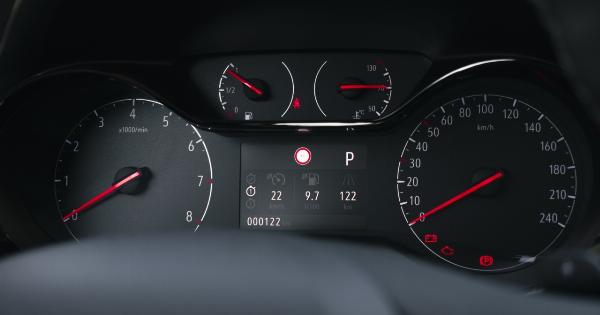Greed is an insidious trait that can be found in almost everyone. It is a desire that we all have to accumulate more and more possessions, money or power. In many cases, greed can be a motivating factor that drives us forward in life.
However, greed can also be a hindrance, affecting our personal lives as well as our professional lives. Greed can stand in the way of effectiveness and productivity, making it a hindrance to Lean Progress. This article will explore how greed can be a hindrance to Lean Progress.
The Relationship Between Greed and Lean Progress
Lean Progress is a business philosophy that focuses on minimizing waste and maximizing value. It involves the identification of non-value-adding activities in processes and eliminating them.
Lean Progress can be achieved by continually improving processes and empowering the team members to eliminate waste.
Greed has a direct impact on Lean Progress as it encourages people to focus on short-term gains rather than long-term improvement.
When people are focused on making quick profits, they tend to neglect the benefits of Lean Progress, which requires patience to implement and has long-lasting benefits.
Moreover, greed can also lead to a lack of communication and collaboration within teams. This is because people who are driven by greed tend to prioritize their personal interests over team goals.
This lack of collaboration makes it difficult to achieve Lean Progress, which requires close collaboration among team members.
Greed and Lack of Empowerment
In many cases, employees who are driven by greed tend to hold power rather than empowering others. This is often because power equals more money or possessions.
In turn, employees who lack empowerment are less likely to provide value and focus on Lean Progress. This is because empowerment is essential for engaging employees in the process of Lean Progress. Empowerment encourages employees to take ownership and identify opportunities for improvement within their processes.
Greed also leads to a lack of empowerment in the sense that people who are driven by greed tend to hoard knowledge rather than sharing it. This is because knowledge equals power, and in turn, more money or possessions.
Unfortunately, a lack of knowledge sharing can prevent Lean Progress because it is often up to teams to identify areas for improvement and work around issues collaboratively.
Greed Results in Short-Term Decision-Making
Greed is driven by the urge to accumulate more possessions, money or power. When people are greedy, they tend to think about short-term gains rather than long-term benefits. Lean Progress requires employees to think about long-term benefits.
When people are focused on short-term gains rather than the long-term, they tend to prioritize speed over quality. This is because time equals money, and in turn, more possessions or power. However, in Lean Progress, the focus is on quality over speed, and this is essential in achieving long-term success.
Moreover, a focus on short-term gains can be detrimental to the continuous improvement philosophy of Lean Progress. This is because it may lead teams to overlook opportunities to improve processes and make them better in the long run.
Greed and Resistance to Change
One of the significant hindrances to Lean Progress is the resistance to change. Resistance to change is often associated with people who are driven by greed. They resist change because it threatens their power, possessions or money.
They resist Lean Progress because it requires new ways of thinking and working, and it may challenge their existing knowledge and processes.
Resistance to change is a barrier to Lean Progress, which requires an open-minded workforce prepared to adapt to new work cultures and environments.
Greed and Lack of Customer Focus
Greed can also lead to a lack of customer focus, which can be detrimental to Lean Progress. When employees are driven by greed, they tend to focus only on their interests rather than customer needs.
This lack of customer focus prevents employees from understanding customer needs and delivering value that meets those needs.
Customer focus is a critical component of Lean Progress. It requires employees to understand the process and look for ways to deliver maximum value to the customer.
A lack of customer focus means that teams are less likely to improve processes or deliver value to customers.
Greed and Lack of Motivation
Greed can also lead to a lack of motivation, making it a hindrance to Lean Progress. When employees focus only on money, possessions or power, they become less motivated to work towards the long-term goals of an organization.
This is because they fail to see the value in doing so or do not believe that it will lead to immediate financial gain.
Lean Progress requires a motivated workforce that understands the long-term benefits of delivering value to customers and the organization as a whole.
A lack of motivation can prevent teams from working collaboratively towards this common goal and can result in a lack of Lean Progress.
Greed Leads to a Lack of Trust
Greed can lead to a lack of trust within teams. This is because the desire for money, power or possessions can often lead to a lack of transparency or a failure to consult and work with others to achieve goals.
A lack of trust within teams can further hinder Lean Progress. When teams do not trust one another, they can become less likely to collaborate and work together to achieve long-term goals.
Moreover, a lack of trust can prevent teams from being open and honest about problems and challenges they face within processes. This can prevent them from identifying areas for improvement and can lead to a lack of Lean Progress.
Greed Hinders Employee Engagement
Employee engagement is critical to Lean Progress. It is essential for employees to feel engaged in the process of Lean Progress to identify areas for improvement and work collaboratively towards achieving long-term goals.
Unfortunately, greed can hinder employee engagement. This is because employees who are driven by greed tend to only focus on their interests rather than the interests of the organization or team.
Moreover, employees who are driven by greed tend to lack the motivation to work collaboratively towards achieving Lean Progress.
This is because they do not see the value in doing so or do not believe that it will lead to an immediate gain in possessions, power or money. A lack of employee engagement makes it difficult to achieve Lean Progress, which requires a collaborative approach to identify areas for improvement and work together to implement solutions.
Greed and the Role of Leadership
In conclusion, greed is a significant hindrance to Lean Progress. It can prevent teams from achieving long-term goals by encouraging short-term thinking, resistance to change, and a lack of collaboration, innovation and engagement.
As such, it is vital for leaders to promote a culture that discourages greed within the organization.
Leadership is crucial in shaping the culture of an organization. Leaders can ensure a focus on Lean Progress by promoting collaboration, transparency, empowerment, and a long-term focus on delivering value to customers.
Moreover, they can discourage greed by promoting ethical behavior, demonstrating the value of transparency, consultation, motivation and engagement. Only then can businesses achieve Lean Progress and deliver long-term value to their customers and organization.





























